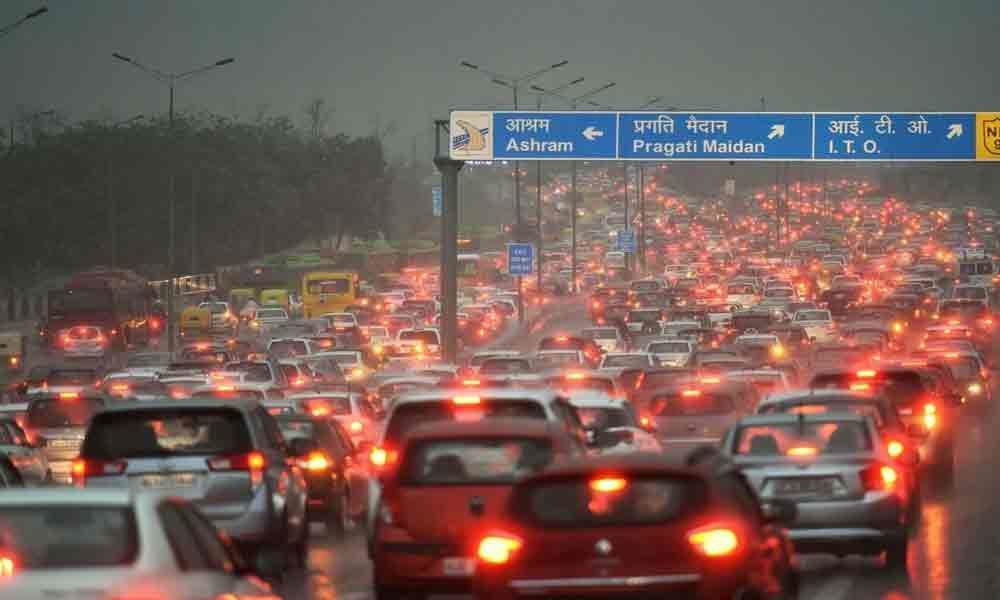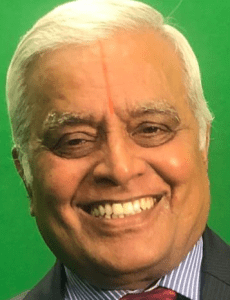
Panel calls for tough measures to address Delhi’s traffic woes

The Parliamentary Standing Committee on Home Affairs in the report, titled ‘The management of worsening traffic situation in Delhi,’ has given some drastic suggestions to improve traffic management for the Capital.
Among other suggestions, the panel has recommended registration of vehicles only on disposal of old ones and availability of parking space, separate lanes for VIPs, two-wheelers and emergency vehicles.
The report, which was tabled in Rajya Sabha on Wednesday (December 11) said insurance premium need to be linked with rule violations to act as a deterrence for offenders.
Calling for a thorough study on the impact of odd-even scheme, the report by the 31-member panel, headed by Rajya Sabha member Anand Sharma suggested 107 recommendations to overcome the traffic woes in the Capital to make it more livable.
Suggesting induction of 6,000 more buses and putting in place a Freight Traffic Management Policy, it said the government has to promote non-motorised transport and multi-modal integration at Metro stations.
The panel, which has had four meetings since August last year, held talks with senior officials of the Union Ministries of Home Affairs, Road Transport and Highways and Housing and Urban Affairs and representatives of Delhi Government, urban local bodies, DDA, Delhi Police and other agencies associated with infrastructure planning and development and research.
Spike in vehicle numbers
The Committee while expressing its concern over old and unfit vehicles plying on Delhi roads, recommended strict action to ensure compliance with the order of the National Green Tribunal (NGT) on phasing out diesel and petrol vehicles of 10 and 15 years respectively.
Referring to entry of about 12 lakhs vehicles daily into Delhi and conveying displeasure over lack of regulation of freight traffic management, the panel stressed the need for a well-considered Freight Traffic Regulation Policy besides effective regulation of entry of other vehicles from neighbouring States during peak traffic hours.
It said that such vehicles should be allowed to use only the peripheral and Ring Roads and not be allowed to use city roads. The panel noted that freight traffic on Delhi roads contribute more than 18% of the total vehicular volume.
Panel’s warning on e-vehicles
The panel urged Union Ministry of Road Transport and Highways to exercise caution over mandating the electronic vehicles and instead opt for cleaner diesel stating that complete switching over to EVs at this juncture would lead to collapse of automobile sector besides EVs not being proven as a sustainable alternative. A pragmatic approach with a right balance of all types of vehicles to run on different fuels has been suggested.
The committee also told the Delhi Police to focus on rule enforcement and also ensure on-road discipline like lane driving. The panel hoped that the Motor Vehicles (Amendment) Act, 2019 providing for stringent penalties would reduce rule violations but suggested revising the penalties for wider acceptance.
Recommendations for Metro
Acknowledging the positive impact of Delhi Metro, the panel noted that the extensive network has not made much of a difference to the number of vehicles on the roads. It said this was due to lack of last mile connectivity. It suggested DMRC to undertake multi-modal integration at all the stations besides increasing the fleet strength and frequency, rationalisation of fares besides expanding to the unconnected areas.
Advice to decongest key spots
The Committee reviewed the situation in respect of seven congested places like Connaught Place, Lajpat Nagar, Nehru Place, Bhikaji Cama Place, Karol Bagh, Kamala Nagar Market and Krishna Nagar Market and made specific recommendations besides calling for timely execution of planned initiatives for decongestion.
The panel emphasised on technology adoption for traffic management and expressed anguish over non-introduction of computer based Area Traffic Control Systems which are operational in South East Asian countries for 30 years.


